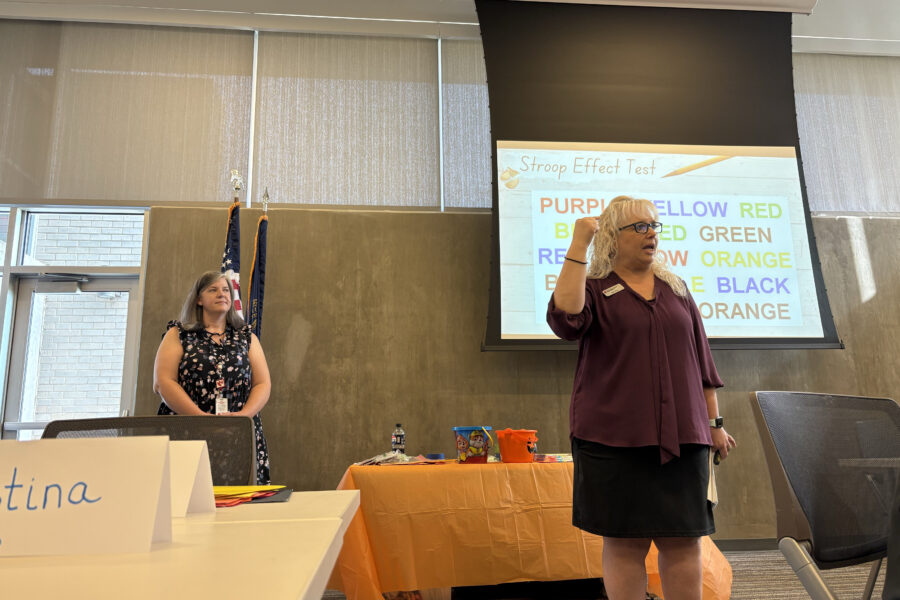The Munroe-Meyer Institute Department of Education and Child Development already helps school districts with evaluation sessions. Now the department is branching out to aid other educators — particularly in early childhood education — through customized training sessions.
The goal is to continue working with early childhood centers and afterschool programs, while also expanding into new training areas and positively impacting more students, said Jolene Johnson, EdD, director of the department.
Trainers in the department already have hosted customized sessions in Omaha, Tulsa and Winnebago.
The department has largely focused on program evaluation of birth to college-age educational programs, Johnson said. Evaluators observe classrooms, give feedback and offer insight on how to best use the feedback to improve practices.
Because of the department’s large bilingual presence, the customized trainings can be offered in both English and Spanish.
“Our team can go in and provide specific and engaging concrete examples,” Johnson said. “We take it to the next level to provide the training to different clients.”
In training sessions, which are largely aimed at early childhood educators, staff address how to best set up quality classrooms, how to develop effective relationships with students, and how to use data to improve instructional practices and interventions.
Much research supports the importance of early childhood education, Johnson said.
“It’s really setting a child’s brain up for success,” she said. “It isn’t simply day care. It’s building the brain.”
A recent session at the Learning Community Center of North Omaha drew close to 20 participants for a session on executive function. The interactive session saw participants working in groups and engaging in videos and discussion.
One goal, Johnson said, is to offer regional training that can be customized for each client.
Of the department’s team of 32, almost everyone can lead training sessions.
“Our department is unique in that we have a lot of disciplines — home visitors, social workers, special education teachers, school counselors,” Johnson said.
